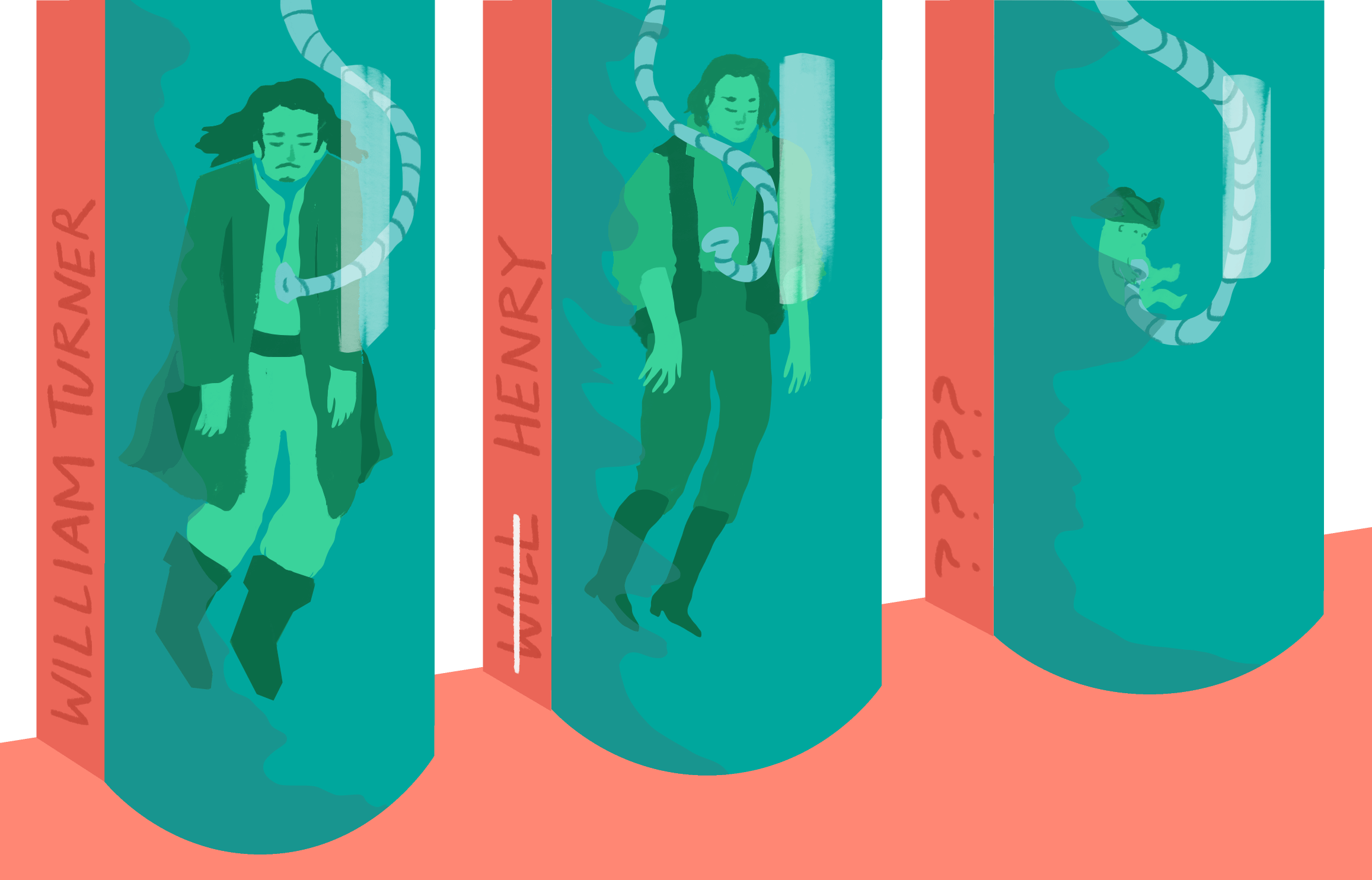
I didn’t watch most of the early “Pirates of the Caribbean” franchise; maybe I saw the first one at a sleepover in third grade, but beyond that, dirty pirates weren’t really my thing. Thus, I came into this film slightly confused and I will take full responsibility for that, as I had assumed I could jump right into the fifth or sixth (possibly eight or ninth) film and immediately understand the plot. Sadly, this was only somewhat true. From my very limited expertise in “Pirates of the Caribbean” — or probably just my expertise in Keira Knightley — I knew there was a main pirate, Jack Sparrow, a secondary man named Will, played by Orlando Bloom, and Keira Knightley’s character the lady pirate. That was all I knew, and it turned out to be the only information I needed.
The plot is literally exactly the same as the very first film, but Keira Knightley and that other guy are replaced by their younger clones. I don’t mean that they’re physically identical — they are all basic white people, so kind of — but I mean clones because their characters develop in exactly the same ways from start to finish.
The film’s plot goes back in time to reveal some of Russell Brand’s heroic yet tragic past. For the first half of the movie I thought Johnny Depp was Russell Brand, because I believed Johnny Depp was dead for some inexplicable reason. I did eventually realize that Jack Sparrow was played by Johnny Depp, but if it were Russell Brand it would be a much better movie.
Anyhow, we find out through heavily-narrated flashback that Jack Sparrow was made ship captain tragically at a very young age, but then he rescued his crew and killed the Spanish pirates. Obviously, the Spanish pirates become pirate zombies-ghosts and hunt down Jack Sparrow. They can’t get out of the haunted ocean triangle until Jack gives up his compass though, so that’s why they’ve been unsuccessful all these years. It’s unclear what the connection is between the compass and the zombie-ghost pirates.
Along with the zombie pirates, there’s also the cheesy romance novel plot that we went through ten years ago with the first movie played out almost exactly the same way, but with new characters. But there’s a bonus: the new Will is actually Will and Keira Knightley’s son. His name is Henry, but it would have been better if it were Liam. This isn’t a secret; it’s revealed in the first three minutes. The new Keira Knightley’s name is questionable at best because she changes it in the last few scenes. It’s unclear what sort of dramatic or emotional response I was supposed to have during the name-changing scene.
All that being said, I would still recommend the film to anyone who feels they need an extra existential crisis in their life. Maybe replacing Will and Keira Knightley was a tactful decision, and an artful attempt to make a larger claim about the ethics and morality of modern day society. By replacing Keira Knightley and that other guy with their exact replicas, the film perfectly exposes the futility of the western myth of societal progress. One could also argue that the world itself is just a macro-cosmic version of Hollywood and we are all Keira Knightley, doomed to be infinitely replaced by younger, hotter versions of ourselves.
I choose to believe this was a purposeful maneuver. They couldn’t have just coincidentally placed this cloning plot right alongside the zombie-ghost pirate plot, that would make no sense. Zombie-ghosts bent on revenge are an obvious metaphor for fear of death and existential crisis. It was too obvious to leave it there — bordering on cliche, really — so they had to complicate it with the absurd love plot cloning. As unrealistic as zombie/ghost pirates seem, the Keira Knightley and Orlando Bloom clones are us, or we’re Keira Knightley and Orlando Bloom
It doesn’t really matter if we’re the originals or the clones. What matters is that the cloning process perfectly exposes the human side of the fear of death and existential crisis. We all know we’re going to die and the world will end and only a lucky few will be resurrected at zombie-ghost pirates. Very few of us make any difference in the world at all because we’re all basically just specs of dust, so we lie to ourselves about how much progress we’re making as a collective.
“Pirates of the Caribbean’s” brilliance lies in how boldly and unapologetically the film reveals what a fallacy human progress really is. We’re doomed to repeat the same exact plots over and and over in life just as they are in Hollywood. It’s about time we recognized the pointlessness of our own existence and just accepted our lives for what they are. Furthermore, we should stop asking more from films and accept them as meaningless plots meant only to distract us from our own meaningless lives.







